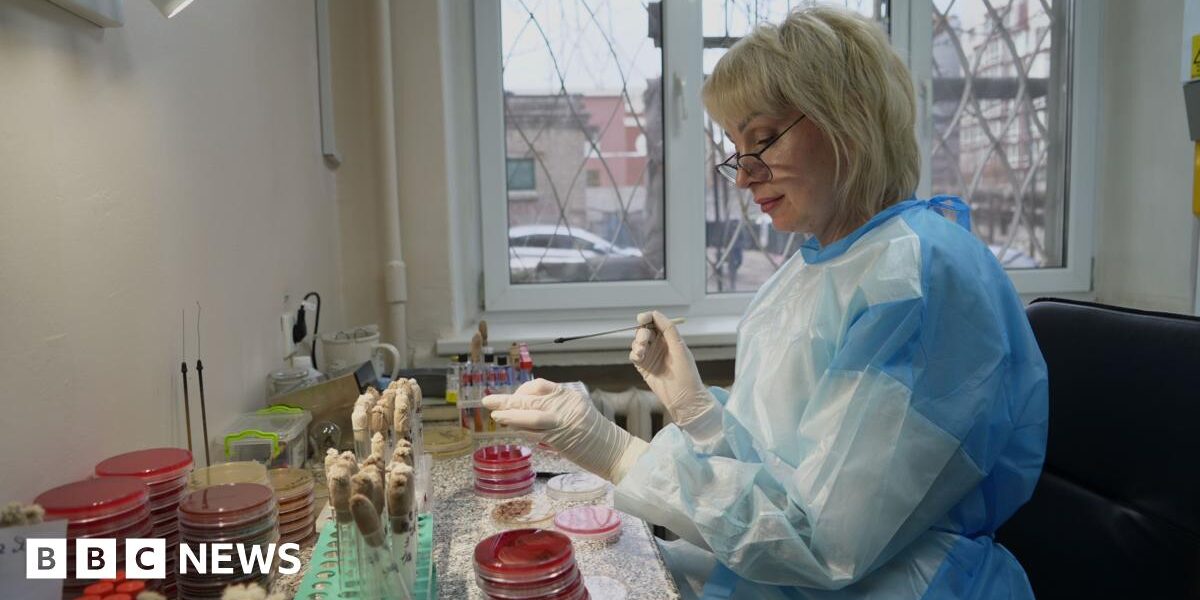When Pte Oleksander Bezverkhny was evacuated to the Feofaniya Hospital in Kyiv, few believed he would live. The 27-year-old had a severe abdominal injury and shrapnel had ripped through his buttocks. Both his legs were amputated.
Then, doctors discovered that his infections were resistant to commonly-used antibiotics – and the already daunting task of saving his life became almost hopeless.
Antimicrobial resistance (AMR) is when bacteria evolve and learn how to defend themselves against antibiotics and other medicines, rendering them ineffective.
Ukraine is far from the only country affected by this issue: around 1.4 million people globally died of a AMR infection in 2021, and in the UK there were 66,730 serious antibiotic-resistant infections in 2023. However, war appears to have accelerated the spread of multi-resistant pathogens in Ukraine.
Clinics treating war injuries have registered a sharp increase of AMR cases. More than 80% of all patients admitted to Feofaniya Hospital have infections caused by microbes which are resistant to antibiotics, according to deputy chief physician Dr Andriy Strokan.
Ironically, antimicrobial-resistant infections often originate from medical facilities.
Medical staff try to follow strict hygiene protocols and use protective equipment to minimise the spread of these infections but facilities can be overwhelmed with people injured in the war.
Dr Volodymyr Dubyna, the head of the Mechnikov Hospital’s ICU, said that since the start of the Russian invasion his unit alone has increased the number of beds from 16 to 50. Meanwhile, with many employees fleeing the war or joining the military themselves, staffing levels are down.
Dr Strokan explained that these circumstances can affect the spread of AMR bacteria. “In surgical departments there is one nurse that looks after 15-20 patients,” he said. “She physically cannot scrub up her hands in the required amount and frequency in order not to spread infections.”





